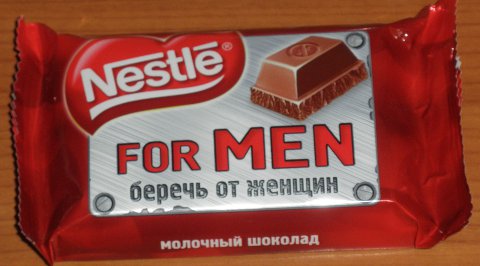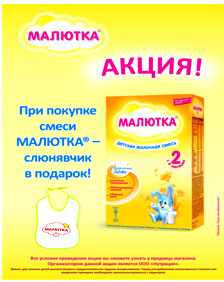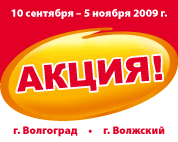Два/две (часть первая)
Every student of the Russian language knows that Russian nouns have a singular form and a plural form. Many don't know that a thousand years ago those nouns had a “dual form” as well. The dual meant “two of an item”, whereas the plural meant “more than two of an item”. Thus града meant “two cities” and сътѣ meant "two hundreds" and сестрѣ meant “two sisters”. At that time the number дъва was an adjective that agreed with masculine dual nouns and emphasized twoness, and дъвѣ was an adjective that agreed with neuter/feminine nouns and emphasized twoness as well. So back then we had дъва града “two cities”, дъвѣ сътѣ “two hundreds”, and дъвѣ сестрѣ “two sisters”.
Over the centuries time/entropy/life disrupted all that beautiful grammatical symmetry. The "-a" form of masculine nouns often resembled the genitive singular, so nowadays the numbers два/две are followed by nouns in a form that generally coincides with the genitive singular form. The gender association of the numbers shifted as well: nowadays два is used with masculine and neuter nouns, and две is only used with feminine nouns. Here are some sample sentences:
| Дважды два — четыре. | Two times two is four. |
| У меня два брата, которые постоянно издеваются надо мной. | I have two brothers who constantly make fun of me. |
| Когда я был ребёнком, на меня наехали две машины, я пролежал в больнице три месяца. | When I was a child, I was run over by two cars, and I lay in the hospital for three months. |
| — Как зовут твою девушку? — Какую? У меня две девушки. — Какой ты бабник! |
"What's your girlfriend's name?" "Which one? I have two girlfriends." "You are such a player!" |
Шоколад
The Russian word for chocolate is шоколад, which is a perfectly regular noun. Theoretically it occurs in the plural, but it is fairly uncommon to encounter the plural form:
| Sg | Pl | |
| Nom | шоколад | шоколады |
| Acc | ||
| Gen | шоколада | шоколадов |
| Pre | шоколаде | шоколадах |
| Dat | шоколаду | шоколадам |
| Ins | шоколадом | шоколадами |
In Russian sometimes people use the genitive form of a noun to mean “a small quantity of” or “some”:
| Ты хочешь шоколада? | Would you like some chocolate? |
Шоколад is one of those words that has an alternative old genitive form that ends in -у. Such a form is called the second genitive. When it is used in the meaning of “some,” we call that usage the partitive genitive. It's entirely possible that you might encounter a sentence like this:
| Ты хочешь шоколаду? | Would you like some chocolate? |
Those second genitives are old-fashioned. You are more likely to hear it from the mouth of a Russian бабушка than from someone under thirty years of age.
When you go to Russia you will encounter all sorts of chocolate that you have never seen before. My favorite one this summer was this one:

The line беречь от женщин means “keep away from women.” I about died laughing when I first encountered it. I wonder what happens when you feed it to women? Perhaps they turn into gremlins?
Here are some sample sentences:
| — Володь, что такое эскимо? — Это мороженое, покрытое шоколадом. |
“Vladimir, what is an ‘Eskimo’?” “It's ice cream covered with chocolate.” |
| Я просто не могу жить без шоколада. | I just can't live without chocolate. |
| — Ты любишь шоколад? — Люблю, но у меня появляются прыщики от него. — Это полнейший бред. У тебя прыщики, потому что ты никогда не моешь лицо. |
“Do you like chocolate?” “I do, but it gives me pimples.” “That's complete bunk. You have pimples because you never wash your face.” |
| — Ты слышал, что одесский завод производит сало в шоколаде? — Слышал, но в действительности это лишь карамель с привкусом сала, а не настоящее сало. |
“Did you hear that a factory in Odessa produces fatback covered with chocolate?” “I did, but really it is only caramel with some fatback flavoring, not real fatback.” |
Выходить/выйти (часть вторая)
Previously we discussed выходить/выйти in the sense of ‘to exit, walk out of, step out of.’ Today we want to focus on a subset of those meanings. The past tense of the verb is often used to mean “to leave a place with the intention of returning shortly.” When used this way, it is often accompanied by the preposition на followed by a time phrase in the accusative:
| Преподавательница вышла из аудитории на минуту. | The teacher stepped out of the classroom for a minute. |
| Директор вышел из офиса на пять минут. | The manager stepped out of the office for five minutes. |
| — Мне, пожалуйста, Сергея Владимировича. — Он только что вышел. Перезвоните через полчаса. |
“I'd like to speak with Sergei Vladimirovich, please.” “He just stepped out. Call back in half an hour.” |
| — Где Света? — Она вышла покурить. |
“Where is Svetlana?” “She stepped out to have a smoke.” |
Акция
Over time words change their meanings, and their meanings can change in several ways:
- A particular meaning of a word can be used less and less often to the point that many people don't know the old meaning. For instance, “charity” in English used to mean “love of one’s fellow man,” a meaning of the word that nowadays is not well known outside of religious circles.
- A general meaning of a word can be used more often in a more specific sense. “Charity” is again a good example, which nowadays mostly means “giving money to the needy” or “an institution that helps the needy.”
- A particular meaning can be generalized.
- A brand new meaning can be applied to a word with only the vaguest of connections to its previous meanings. The use of “mouse” in the sense of a device used to reposition the cursor on a computer screen.
And when a word is being used in a new sense, that sense is not usually reflected in dictionaries for some time. One such word that has a very common meaning these days that is not shown in most dictionaries is the word акция which can now mean "sale, special" in the sense of a temporarily reduced price. I was very surprised to learn this meaning this summer, because previously the most common meaning of акция was “a share of stock.”
Here are some examples of that usage from this summer. In this first ad if you buy малютка, then you get a free bib, so probably the best translation of акция is “special”:

In this next one if you buy Ryaba brand mayonaisse, you can win 10,000 rubles, so again “special” is the best translation:

This next one is a banner hung in front of a Пятерочка grocery store. Notice they've added супер to the word, so here we have a supersale:

Выходить/выйти (часть первая)
The Russian verb that means ‘to exit, walk out of, step out of’ is выходить/выйти:
| Imperfective | Perfective | |
| Infinitive | выходить | выйти |
| Past | выходил выходила выходило выходили |
вышел вышла вышло вышли |
| Present | выхожу выходишь выходит выходим выходите выходят |
No such thing as perfective present in Russian. |
| Future |
буду выходить будешь выходить будет выходить будем выходить будете выходить будут выходить |
выйду выйдешь выйдет выйдем выйдете выйдут |
| Imperative | выходи(те) | выйди(те) |
The verb is most often used with the preposition из and the genitive case to indicate the place from which the subject is leaving. Although the essential meaning of the verb is 'to exit,' it often sounds stiff to use 'exit' in translation. A good translation will substitute other phrases that capture the same idea but flow better:
| Маша вышла из комнаты. | (Mary exited the room.) (Mary exited from the room.) Mary left the room. Mary stepped out of the room. |
| Володя вышел из библиотеки без пальто и простудился. | Vladimir stepped out of the library without his coat and caught a cold. |
| Как только гости выйдут из номера, горничная начнёт убирать. | As soon as the guests step out of the hotel room, the maid will start straightening up. |
| Когда пассажиры выходят из метро, их окружают цыганские дети. | When passengers come out of the subway, they are surrounded by gypsy children. |
<< 1 ... 51 52 53 ...54 ...55 56 57 ...58 ...59 60 61 ... 158 >>